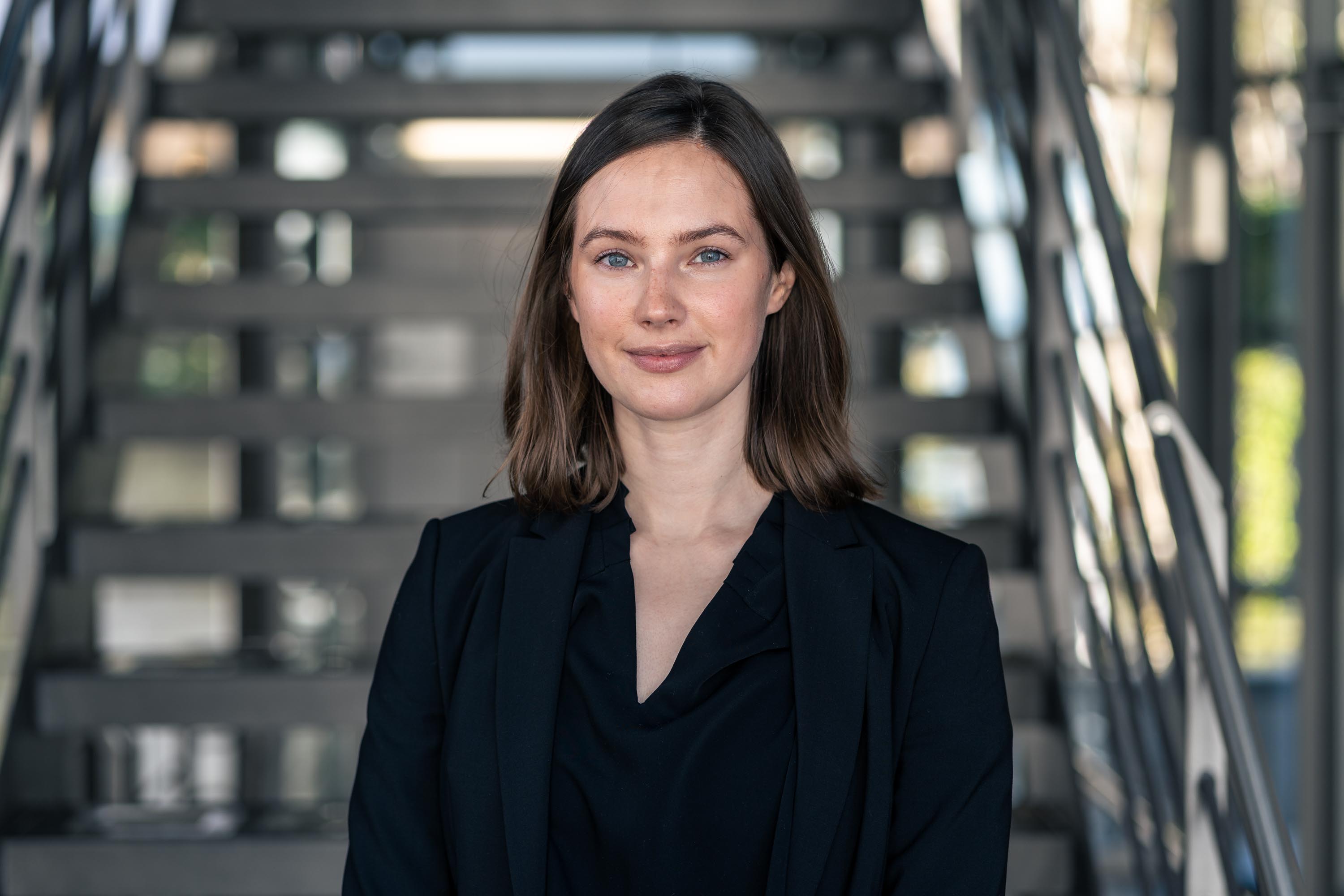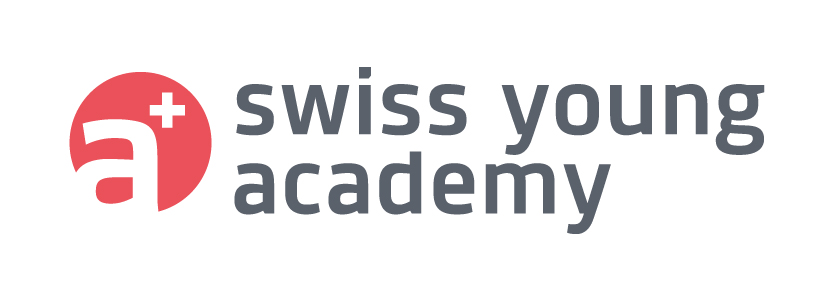Networking science.
Advancing practical medicine without practicing it
Portrait I Astrid Tomczak-Plewka

Mid-conversation, Lauren Clack springs a surprise. A security guard enters the meeting room and asks a question in Zurich’s Swiss German dialect. Without batting an eye, Clack, who was born and raised in the USA, switches from her native English into Swiss German. “I have kind of a strange accent”, she says afterwards, almost apologetically. This seems a bit of an understatement. Later on, she talks about how humility is not a particularly valued trait in the academic world – and yet one she thinks is important to demonstrate.
“The academic world is not a system that rewards kindness.”
It is unlikely that humility is what secured Clack the positions she has held. Yet it is more than likely that humility is what has helped foster the particularly good spirit within her team. Since February 2021, Clack has been Assistant Professor of Implementation Science in Health Care at the University of Zurich. She leads a team of nine people, most of whom are doctoral students or postdoctoral researchers. “I truly feel responsible for them”, says the 34-year-old. “But the academic world is not a system that rewards kindness.” Clack considers it very important to transparently communicate one’s own needs, for example when negotiating the authorship of a publication. “In our team, we have good relationships with each other. And I try not to take advantage of my people.” This serious commitment is apparent during the conversation with Clack – and so is her enjoyment of the work she does. “So much research is done on how to improve people’s health,” she says, “but a lot of that research just lands in a drawer. We, however, are translating research into practice.” For example, Clack has worked on implementing the practice of kangaroo care, a method used primarily with preterm infants. This method involves parents holding their infants on their chests, which increases the babies’ chances of survival and reduces their susceptibility to illnesses. Though it may sound rather simple in theory, kangaroo care is less easy to implement in practice. During a certain period of time, caregivers must stay with their babies in the hospital around the clock, which is only possible when laws exist that allow them to take the necessary time off work. This is an example of what Clack calls the “know-do gap”. “But”, she adds, “tackling the challenge of closing this gap is exactly what makes my work interesting – and doing it together with a team of super intelligent, motivated people.”
“I realised that there are ways to make a difference in the field of medicine that don’t involve studying it.”
Originally, Clack wanted to study medicine. She grew up in Michigan, and in the USA a bachelor’s degree is a requirement for medical school. So Clack decided to pursue a bachelor’s degree and majored in biology, French, and international studies. During her final undergraduate year, she studied abroad in Geneva for a semester, focusing on public health and setting the course for her future career. “I stayed with a wonderful host family that had two children and a St Bernard”, she recounts. After obtaining her bachelor’s degree, Clack had the opportunity to do an internship at Geneva University Hospitals (HUG). “That was a formative experience”, she says. During her internship, she saw just how significantly behavioural changes contribute to patients’ recovery. “I realised that there are ways to make a difference in the field of medicine that don’t involve studying it”, she reflects. She worked on a research project at HUG that studied different European hospitals to identify key factors for preventing infection. One finding Clack mentions is that “the ability of some hospitals to better control infection than others is not related solely to economic conditions”. She continues, “Each hospital is different, so you can’t look at one hospital and draw conclusions about all the others.” In other words, you can’t escape the human element in medicine, making individual behaviour a key factor for successful outcomes.
“The Swiss Young Academy has opened doors for me.”
Clack continued her studies in England, where she obtained her master’s degree in applied ergonomics. She went on to complete her doctorate in applied psychology at the University of Zurich. From 2012 to 2020, Clack worked as a researcher and project leader at the Department of Infectious Diseases and Hospital Epidemiology at the University Hospital Zurich. During her daily work at the hospital, Clack applied the methods she had researched as an implementation scientist. Ultimately, her goal was to improve health care by systematically integrating evidence-based prevention measures. “Making a real impact, and not just to publishing, is what motivates me”, remarks Clack. This is also true of her involvement in the Swiss Young Academy, whose members Clack sees as a unique group of “goal-getters”. “The idea of being able to help shape the future of the Academy appealed to me”, she explains. “But of course it would be presumptuous to think it’s possible to completely reshape the whole academic landscape.” After being a member for a couple years, she can at least say that “the Swiss Young Academy has opened doors for me”. Which means, in turn, that early career researchers are actually being heard. For example, Clack became a member of the Coordination Platform for Clinical Research managed by the Swiss Academy of Medical Sciences (SAMS) a few months ago and now serves on it as a representative for early career researchers. “I’ve only attended one meeting so far,” she notes, “but it’s an interesting opportunity for me to exchange ideas about the connection between clinical research and clinical practice.”
“Not everyone is made for an academic career. You have to work hard, and you don’t always get rewarded for it.”
Clack has had plenty of practice at seizing opportunities with both hands, regardless of the circumstances. She casually mentions that when she was appointed Assistant Professor at a relatively young age in 2021, she was seven months pregnant. As if it were no big deal. But then she admits, “I realised the timing might not have been so good. But my colleagues were very supportive, and many people on our team have families.” All of this certainly makes for a jam-packed life, especially since her partner also has an academic background. “Not everyone is made for an academic career. You have to work hard, and you don’t always get rewarded for it.” Clack attributes where she is today to the many people who have supported her in various ways, for example by helping with her work permit. “My supervisors in Geneva and Zurich, Walter Zingg and Hugo Sax, played an especially important role in me being able to pursue my academic career in Switzerland”, notes Clack, adding, “I’m very grateful I have this job.” It is this gratitude and good fortune that Clack, a sort of primus inter pares (first among equals), tries to pass on to her team. She finds it important to have mentors who “have a personal approach and with whom you enjoy spending your coffee break”.
Again, a flash of that humility. Yet Clack has other sides to her as well. For a year after arriving in Zurich, she refused to learn Swiss German. “I was very stubborn”, she admits. In the end, her study nurse at the hospital persuaded her to reconsider: a perfect example of successful behavioural change. And now, in her everyday life, Clack can chat with the security guard in the Züritüütsch dialect.
Biography
From the Great Lakes to Lake Zurich: Lauren Clack was born in 1989 in the USA and grew up with her parents and younger sister in the Midwest, near the Great Lakes. After completing her bachelor’s degree with majors in biology, French, and international studies at Hope College in Holland, Michigan (USA), Clack went on to obtain her master’s degree in applied ergonomics (human factors engineering) at the University of Nottingham in the UK and then her PhD in applied psychology at the University of Zurich. She is currently Assistant Professor of Implementation Science in Health Care at the University of Zurich. “My parents tell people I’m a teacher”, she says with a laugh. The ambitious triathlete spends a significant amount of her free time on her e-bike or in her running shoes. She can often be found at a potter’s wheel as well – and even has one at home. Creating blue and white cups is her speciality. “It feels good to create something tangible with my hands”, she says. Lauren Clack lives in Zurich with her husband and their son Oliver (3).
